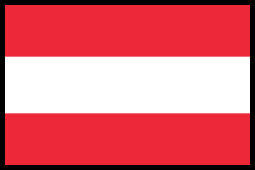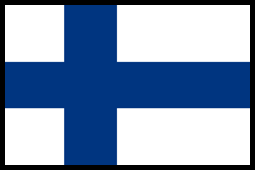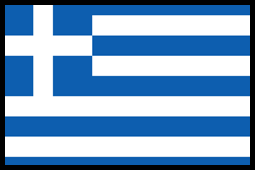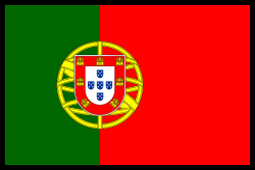Send Gifts In Europe / Spain / Gift Baskets to Ceuta

Send Gift Baskets to Ceuta, Spain
Are you looking for the best and perfect gift baskets to Ceuta, Spainfor your loved one? If yes, you reached the right place.
An autonomous city on the north coast of Africa, Ceuta is part of the Spanish empire.
The population of Ceuta: 84,829 (2019)
The standard delivery method to Ceuta: 4 – 6 working days*
The express delivery method to Ceuta: 1 – 2 working days*
*Saturday and Sunday are not included as working days
Use Our Advice
We are here always at your service.
No Minimum Order
Each customer is important to us.
Shipping Information
We deliver all over Europe.
Discover Our Gift Baskets For Every Occasion
Holiday Gifts
Ceuta Overview
An autonomous city on the north coast of Africa, Ceuta is part of the Spanish empire.
The country is bordered by Morocco, between the Mediterranean Sea and the Atlantic Ocean. It is one of several Spanish territories in Africa and one of the few permanently inhabited by civilians, along with Melilla and the Canary Islands. Before the passage of its Statute of Autonomy in March 1995, it was a regular municipality belonging to the province of Cadiz.
Until Spain joined the European Union, Ceuta was considered a free port, along with Melilla and the Canary Islands. Christians and Muslims make up the majority of the population. In addition, there are a few Sephardic Jews and Sindhi Hindus who are from Pakistan today.
Although Spanish is the only official language, Darija Arabic is also widely spoken.
Names
Historically, the name Abyla was a Punic name for Jebel Musa, the southern Pillar of Hercules (“Lofty Mountain” or “Mountain of God”). The name of the mountain was, in fact, Habenna (Punic: 𐤀𐤁𐤍, ʾbn, “Stone” or “Stele”) or ʾAbin-ḥīq (𐤀𐤁𐤍𐤇𐤒, ʾbnḥq, “Rock of the Bay”), about the nearby Bay of Benzú. The name was Hellenized variously as Ápini (Greek: Ἄπινι), Abýla (Ἀβύλα), Abýlē (Ἀβύλη), Ablýx (Ἀβλύξ), and Abílē Stḗlē (Ἀβίλη Στήλη, “Pillar of Abyla”) and in Latin as Abyla Mons (“Mount Abyla”) or Abyla Columna (“the Pillar of Abyla”).
It was later renamed for the seven hills around the site, collectively known as the “Seven Brothers” (Greek: transit. Heptádelphoi; Latin: Septem Fratres). Interestingly, the Roman stronghold at the site was referred to as “Fort at the Seven Brothers” (Castellum ad Septem Fratres). Septem (Sépton) or, occasionally, Septum or Septa gradually replaced this name. As a result of these clipped forms, Berber Sebta and Arabic Sabtan or Sabtah (Ceuta) have continued to be used, and they have also become Ceuta in Portuguese (pronounced) and Spanish (locally pronounced).
History
Military and commercial traffic is controlled by the Strait of Gibraltar, which connects the Atlantic Ocean with the Mediterranean Sea. Phoenicians realized the narrow isthmus separating Almina Peninsula from the African mainland made Ceuta eminently defendable and established an outpost there early in the 1st millennium B.C. It is referred to in Greek geography by various forms of Abyla, the ancient name of Jebel Musa, located nearby. Besides Calpe, the other Pillar of Hercules, now known as the Rock of Gibraltar, the Phoenicians also established Kart in San Roque, Spain. Several other anchorages nearby became Phoenician and then Carthaginian ports, now Tangiers and Cádiz.
Most of northwest Africa was left to the Roman client states of Numidia and Mauretania after Carthage was destroyed in the Punic Wars. During the Roman era, Punic culture flourished in what the Romans called “Septem.” When Caesar and his heirs annexed North Africa directly as Roman provinces in 46 B.C., most of Septem’s Berber residents continued to speak and write in Punic as late as Augustus.
In A.D. 40, Caligula assassinated Ptolemy and seized his kingdom, which Claudius organized in A.D. 42, adding Septem to the province of Tingitana and raising it to the status of a colony. Later, it was Romanized and flourished into the late 3rd century, trading heavily with Roman Spain and becoming famous for its salted fish. Overland connections were established with Tingis (Tangiers) and Volubilis through roads. Septem had 10,000 inhabitants under Theodosius I in the late 4th century, nearly all of whom spoke African Romance, a dialect of Latin spoken locally.
As Count Boniface’s protection against the empress dowager, Vandals crossed the strait near Tingis around 425 and quickly conquered Roman North Africa. The Berber king Gaiseric focused on the rich lands around Carthage; However, the Romans eventually accepted his conquests; he continued to raid the lands but soon lost control of Tingis and Septem. Belisarius, Justinian’s victorious general, hastened along the coast and established Septem as the westernmost outpost of the Byzantine Empire around 533. In contrast to the ancient Roman administration, Eastern Rome didn’t extend far into the hinterland, making Septem their regional capital instead of Tingis, which was less secure.
Geography
The Strait of Gibraltar separates Ceuta from the province of Cadiz on the Spanish mainland by 17 km (11 mi), and it shares a land border with M’diq-Fnideq Prefecture in Morocco by 6.4 km (4 mi). A total of 18.5 km2 (7 sq mi; 4,571 acres) is covered by this park. Along its western border with Morocco, Monte Anyera, a hill guarded by a Spanish military fort, dominates the region. Located on the Peninsula of Almina overlooking the port, Monte Hacho is one of the possible places for the southern pillar of the Pillars of Hercules of Greek legend (the other possibility is Jebel Musa).
Climate
The sea influences the climate of Ceuta, similar to the Mediterranean climate in nearby Spanish or Moroccan cities such as Tarifa, Algeciras, and Tangiers. It’s unusually cool for Ceuta, with an average annual temperature of 18.8 degrees Celsius (65.8 degrees Fahrenheit). Average high yearly temperatures are 21.4 degrees Celsius (70.5 degrees Fahrenheit), and low temperatures are 15.7 degrees Celsius (60.3 degrees Fahrenheit). Due to the moderating effect of the Straits of Gibraltar, Ceuta has relatively mild winters relative to its latitude, while its summers are more temperate than in Southern Spain’s interior. It is an arid climate in summer, but it receives 849 millimeters of rainfall every year, which would be considered a humid climate if the summers weren’t so hot.
Economy
It is the euro that is the official currency of Ceuta. In Spain, it is part of a special low-tax zone. Ceuta, along with Melilla, is one of two Spanish port cities on the northern shore of Africa. Historically, they have served as military strongholds and free oil and fishing ports. As a result, the city’s economy relies heavily on its port (which is currently being expanded) and its industrial and retail centers. Connecting Ceuta by air with mainland Spain through the Ceuta Heliport is now possible. El Corte Inglés, Decathlon, and Lidl all have branches in Ceuta. In addition, there is a casino. Taking advantage of the advantage of tax-free status, Ceuta and Morocco have active border trade. Thousands of Moroccan women employ porters daily in the cross-border porter trade. Despite the price tags being in euros, the Moroccan dirham is still used in these businesses.
Transport
Ferries arrive daily in Ceuta’s Port of Ceuta from Algeciras, a port in Andalusia in the south of Spain. Sania Ramel Airport in Morocco is the closest airport.
Pedestrians and cars can travel between Morocco and Ceuta at a road border checkpoint near Fnideq to the south of Ceuta. A pedestrian border crossing between Benzú and Belyounech on the northern coast is available, and other parts of the border are closed and inaccessible.
Although there is no bus service to neighboring Morocco, it serves both frontier crossings in the city.
Demographics
The population of the city was 85,144 as of 2018. Since Ceuta is in the middle of a multicultural region, its population is diverse regarding ethnicity and religion. Among the major religious groups are Christians and Muslims. The Christian population comprised approximately 50% of the people, and the Muslim population comprised about 48%. About 67.8% of Ceuta’s population was born there, according to a 2018 estimate.
In the enclave, Spanish is the primary and official language. The Moroccan Arabic language (Darija) is widely spoken, and Spanish formally recognized the language in 2023, as the Council of Europe demanded in 2021.
Religion
Ceuta has been a Christian city continuously since late antiquity, as evidenced by the remains of the Basilica in downtown Ceuta and the accounts of the martyrdom of St. Daniel Fasanella and his Franciscans in 1227.
There are also small Jewish and Hindu minorities in the city.
In Ceuta, Roman Catholicism is the most popular religion. In 2019, 60.0% of Ceutans identified themselves as Roman Catholics. Only 3,4% of people considered themselves non-religious (1,5% atheists and 1,9% non-religious).
Education
Undergraduate programs are offered at the University of Granada’s campus in Ceuta. The National University of Distance Education (UNED) serves Ceuta and the rest of Spain.
Most primary and secondary schools offer Spanish-only education, but more and more are implementing bilingual education programs.
Is it worth visiting Ceuta?
Among the many attractions of Ceuta are the Arab baths, the fortress on Mount Hacho, the museums, and the many viewpoints.
What is Ceuta famous for?
The Spanish town of Ceuta lies on the northern coast of Africa along with Melilla, another Spanish port city. These ports are historically military strongholds, free ports, oil ports, and fishing ports. Today, the city’s economy is heavily dependent on its port (which is expanding) and its industrial and retail sectors.
Top Attractions in Ceuta
- Parque Maritimo del Mediterraneo – Parks
- Casa de los Dragones – Points of Interest & Landmarks • Architectural Buildings
- Plaza de Africa – Points of Interest & Landmarks
- Parroquia de Santa Maria de Africa – Historic Sites • Points of Interest & Landmarks
- Playa de la Ribera – Beaches
- Puerta Califal de Ceuta – Historic Sites
- Monte Hacho – Mountains • Points of Interest & Landmarks
- Basilica Tardorromana – Religious Sites
- Los Hercules y la Union del Mundo – Monuments & Statues
- Museo Específico de La Legión – Military Museums
Send Gift Baskets To Ceuta
Walwater Gifts offer a variety of gifts for delivery in Ceuta. No matter who you are buying for or what the occasion is – Christmas Gifts to Ceuta, Birthday Gifts to Ceuta, Wedding Gifts to Ceuta, Valentine’s Day Gifts to Ceuta, Mother’s Day Gifts to Ceuta, Father’s Day Gifts to Ceuta, Easter Gifts to Ceuta, Holidays in Ceuta, New Baby Gifts to Ceuta, Anniversary Gifts to Ceuta or Sympathy Gifts to Ceuta, we have the perfect gift.
Sending gift baskets to Ceuta is very easy with Walwater Gifts in Ceuta.
Walwater Gifts Holiday Gifts in Ceuta
As we know, People in Ceuta celebrate many different holidays, and Walwater has a gift solution for each of them. We can deliver Christmas Gifts to Ceuta, Valentine’s Day Gifts to Ceuta, Mother’s Day Gifts to Ceuta, Father’s Day Gifts to Ceuta, Birthday Gifts to Ceuta, Easter Gifts to Ceuta, Holidays in Ceuta, Corporate Gifts to Ceuta, Business Gifts to Ceuta, Online Store in Ceuta, etc.
Walwater Gifts offers Express gifts delivery to Madrid, Gifts to Barcelona, and Gifts to Valencia or anywhere else in Spain.
Delivery information for Ceuta
Standard duration (without weekends and public holidays):
4 – 6 business days (Monday – Friday).
Express delivery (without weekends and public holidays):
1 – 2 working days (Monday – Friday)
Gift Orders received by noon (+1 GMT) Walwater Gifts utilizes several different shipping methods, always trying to find the best solution for you. Ground shipping is 4 – 6 business days.
Please note that packets are delivered by a DHL courier in Ceuta. Therefore DHL will not work on Saturdays, Sundays, or Holidays.
Walwater Gifts Shipping information:
When you provide us with complete and accurate delivery information, your gifts will be delivered promptly and you will be spared re-delivery charges. Please check your delivery address carefully. Incorrect or incomplete addresses will result in a € 20,00 handling charge in addition to all charges accrued for re-shipping each item. We cannot ship to P.O. Boxes.
Gifts to Hospitals or Hotels
Please confirm the recipient is still in the hospital/hotel before scheduling the delivery. When placing a gift basket order for delivery to a patient/guest, please include as much information about the patient’s/guest’s location as possible. Such as patient/guest’s name, Hospital, Department (i.e., Maternity), and Room No. And the Hospitals complete address.
Shipping restrictions:
Because we are sending our gift baskets to Ceuta from our European office, there are no Shipping Restrictions. Therefore, this includes Walwater Gifts, which contain alcohol brand gifts to Ceuta.
Cities we deliver to Spain
Walwater Gifts deliver all over Spain. At Walwater Gifts to Ceuta, we have extensive experience in sending gift parcels all over the world. However, each country has unique Customs Regulations and delivery times. Please get in touch with us if you have questions or need assistance placing your order online.
Delivery of our Gift Baskets to Europe
We deliver our gifts & gift baskets everywhere from small towns to major cities to 25 European Countries. Walwater Gifts delivers gift baskets to Austria, Belgium, Bulgaria, Croatia, Czech Republic, Denmark, Estonia, Finland, France, Germany, Greece, Hungary, Ireland, Italy, Latvia, Lithuania, Luxembourg, the Netherlands, Poland, Portugal, Romania, Slovakia, Slovenia, Spain, Sweden.
10 Excellent Reason For Send Gifts In Europe
- We are a European provider with delivery to 25 European countries
We ship our gifts to European Union countries, such as Austria, Belgium, Bulgaria, Croatia, Czech Republic, Denmark, Estonia, Finland, France, Germany, Greece, Hungary, Ireland, Italy, Latvia, Lithuania, Luxembourg, the Netherlands, Poland, Portugal, Romania, Slovakia, Slovenia, Spain, Sweden.
- Walwater Gifts is an original gifts manufacturer, without a middleman fee
SendGiftsInEurope is an original gifts producer, every gift is hand-made in our warehouse
- We have more than 10 years of experience
For more than 10 years we do our best to keep all our customers happy and satisfied
- Fast delivery
Deliveries throughout the European Union from our warehouse, resulting in faster delivery times
- Low shipping charges
Due to our central location in Europe, we provide low shipping charges for Europe and we guarantee no hidden delivery costs in our prices
- All our Gift Baskets contain well-known trademarks products
Selecting only the finest brands, no supermarket food brands because we believe gift baskets should be something special
- We test all wines and foods before we put them in our gifts
All our wines are tested and approved by the management and the staff (no, we’re not constantly drunk, but a glass or two of wine is perfect for inspiration)
- Branded gifts
Walwater Gifts may offer branded gifts. We can customize the entire gift with your company logo, name, ribbons, and more
- Additional gifts available – add ons
We understand that we cannot always fit all needs which is why we offer additional gifts for each gift basket in our range. Add as many bottles of wine, Teddy bears or other gifts with no extra shipping charges – personalize it! And we have free cards!
- Gift baskets for every occasion
SendGiftsInEurope offers gifts & gift baskets for every holiday and occasion in Europe
Sign Up for exclusive offers
We proudly accept































































